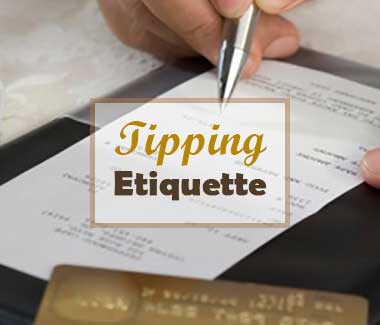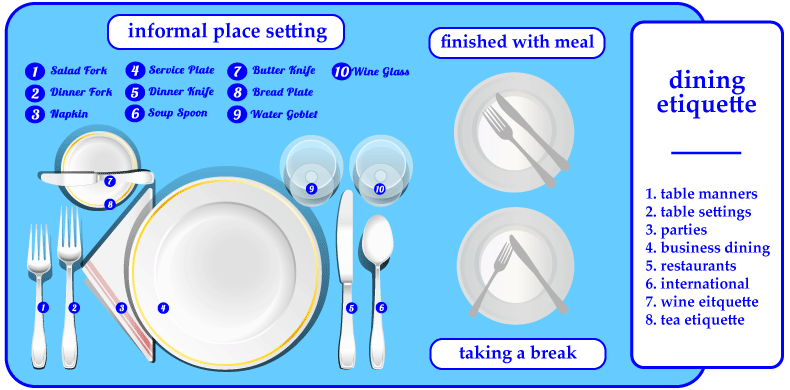
Dining Etiquette
While some of the rules have changed, it is still important for making a favorable impression and showing courtesy to your dining companions. Our etiquette experts have been hard at work creating a contemporary, comprehensive dining etiquette guide with new rules for a new millennium and the time-tested techniques still needed today.
Under each section heading, you will find a link to take you to more detailed rules on each dining etiquette subject.
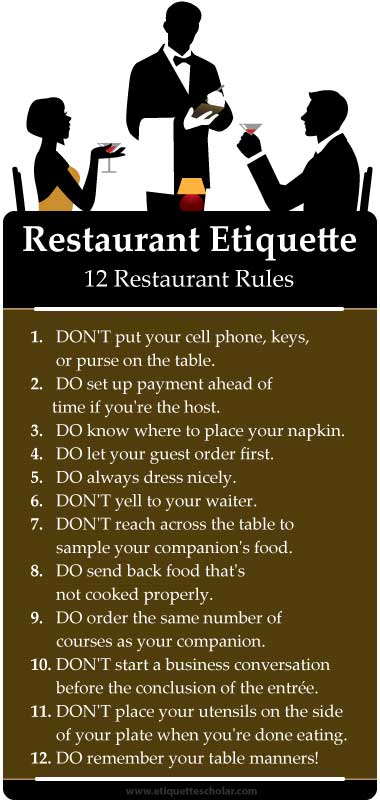
Table Manners
The Basics
For almost all meals, if you are wondering what utensil to use, start from the outside and work your way in. So, if you are served a salad first, use the fork set to the far left of your plate.
For more information on the rest of the top 10 table manners tips, visit our table manners section. The following links will take you to more detailed information to help refine your dining etiquette skills.
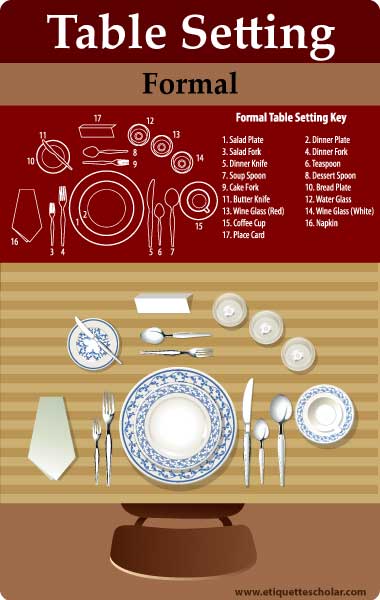
Table Setting
Most occasions require only a basic or informal place setting, but occasions that are more special may require a more formal table setting. Learn everything you need to create the perfect table setting in the links below.
- informal table setting
- formal table setting
- general table setting guidelines (all table settings)
- table linens
- dinnerware
- flatware
- glassware
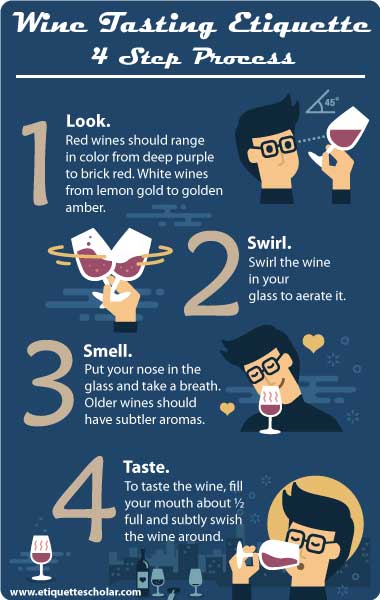
Wine Etiquette
Despite all its apparent complexities, wine and wine etiquette really aren't that mysterious. In our wine etiquette section, we make wine tasting, selection and serving as easy as possible by providing step-by-step guidance.
- ordering wine in a restaurant
- food and wine pairings
- wine tasting
- wine temperature
- decanting wine
- wine basics
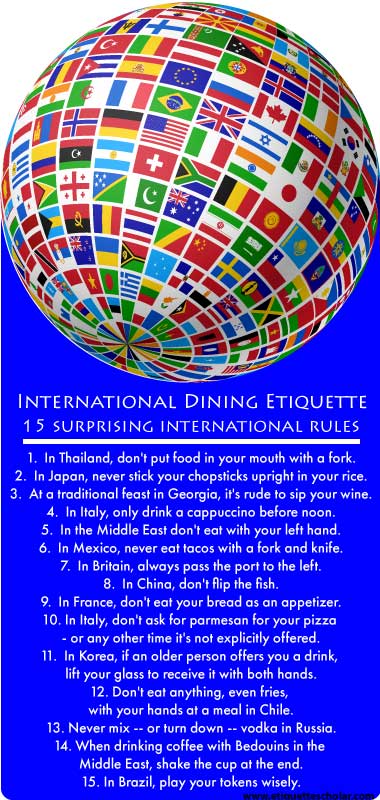
International Dining Etiquette
Dining etiquette provides tools to help us interact with each other. But the prevailing customs in the West might not be appropriate in the East. In Muslim countries, finger food is always taken with the right hand. And an audible belch in Asia praises the host. See the international dining etiquette section to avoid falling into a pitfall.
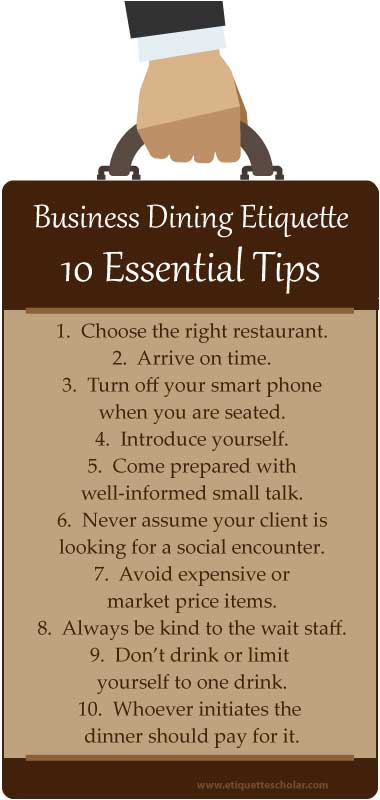
Business Dining
Dining etiquette might be more important to your career success then you think. Proper table manners are associated with competence and professionalism. Bad table manners leave a sloppy impression and signal a lack of attention to detail.
- business meal basics
- eating at the office
- job interviews
- corporate events
- business entertaining at home
- business toasts


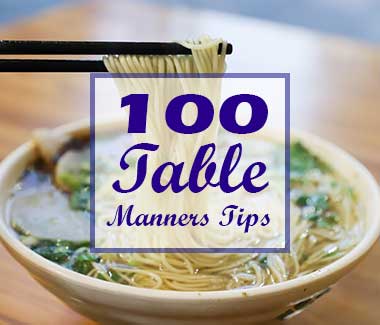
-clean.jpg)

